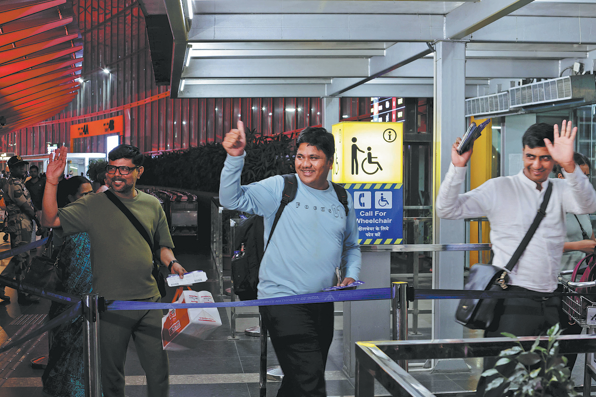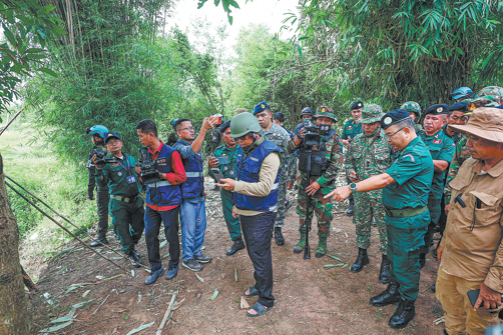Singapore draws praise for measures taken to contain outbreak


The viral outbreak has forced yoga teacher Adeline Tien to cut back on traveling, avoid crowded places and be more aware about her health.
Despite making these changes, the 40-something Singaporean believes that life goes on in the city state.
"I feel the government has been handling (the COVID-19 outbreak) really well. They have taken the effort to reassure the public of their next steps," Tien said.
She cited the regular updates she receives through WhatsApp messenger, media reports and public briefings by health officials.
Tien's faith in the government's management of the disease reflects the global compliments it has received.
Home to 5.7 million people, Singapore has earned a great deal of praise for containing the outbreak-evidenced by its high rate of recovery, low number of deaths and slower rate of infection.
On Jan 23, it reported its first COVID-19 case, with the number climbing to 1,623 as of Wednesday, according to the Ministry of Health. Of the 669 patients still in hospital, most are in stable condition or improving, with 29 in the intensive care unit. Six have died.
Health Minister Gan Kim Yong told parliament on March 25 that the return of Singaporeans based overseas led to a surge in the number of cases in recent weeks.
Gan outlined eight key measures enforced by Singapore to contain the outbreak: slowing the infection rate; effective contact tracing; mass testing; managing the healthcare system; ensuring the well-being of healthcare workers; efforts to develop a vaccine; promoting safe distancing; and urging Singaporeans to be socially responsible.
"The months ahead will be challenging. We need to be prepared for disruptions to our daily lives and changes to how we do things," he said.
Teo Yik Ying, dean of the Saw Swee Hock School of Public Health at the National University of Singapore, said detecting COVID-19 through contact tracing, judicious testing of suspected cases, and isolating high-risk individuals are the three most important measures that have helped Singapore contain the outbreak.
"Contact tracing is applied to every confirmed case to establish as comprehensively as possible the people who have been in contact with the case in the past 14 days," Teo said.
These "high-risk" individuals are quarantined for two weeks. The police also help monitor people in quarantine, with those violating the regulations either being fined or imprisoned.
Nawazish Mirza, an associate professor of finance at La Rochelle Business School in France, said, "Singapore adopted a strict hospital and home-based isolation regime for suspected patients and actively monitored their social circle to curtail the chain of transmission."
Mirza said effective contact tracing and testing is possible due to Singapore's top-level public healthcare system.
The country had responded proactively to the outbreak, Mirza added. For example, as early as Feb 1, a travel ban was imposed and stringent border checks carried out.
Teo, from the National University of Singapore, said informing the public through both traditional and social media helped residents adopt measures to protect themselves, such as frequently washing their hands and postponing travel plans.
World Health Organization Director-General Tedros Adhanom Ghebreyesus has praised Singapore's communication strategy, stating that Prime Minister Lee Hsien Loong's public speeches "are helping to explain the risks and reassure people".
In his televised speeches, Lee gives updates on the outbreak and outlines the government's actions to contain the virus.
Teo said Singapore's communication strategy emphasizes that the government also needs citizens to play their part in combating COVID-19.
"People lie at the heart of this outbreak," Teo said. He cited Singapore, China and South Korea, noting that "a common feature among all these East Asian societies" is citizens' sense of social responsibility.
"This personal responsibility means individuals are willing to accept a temporary compromise on personal liberty for the collective good," he said.

































